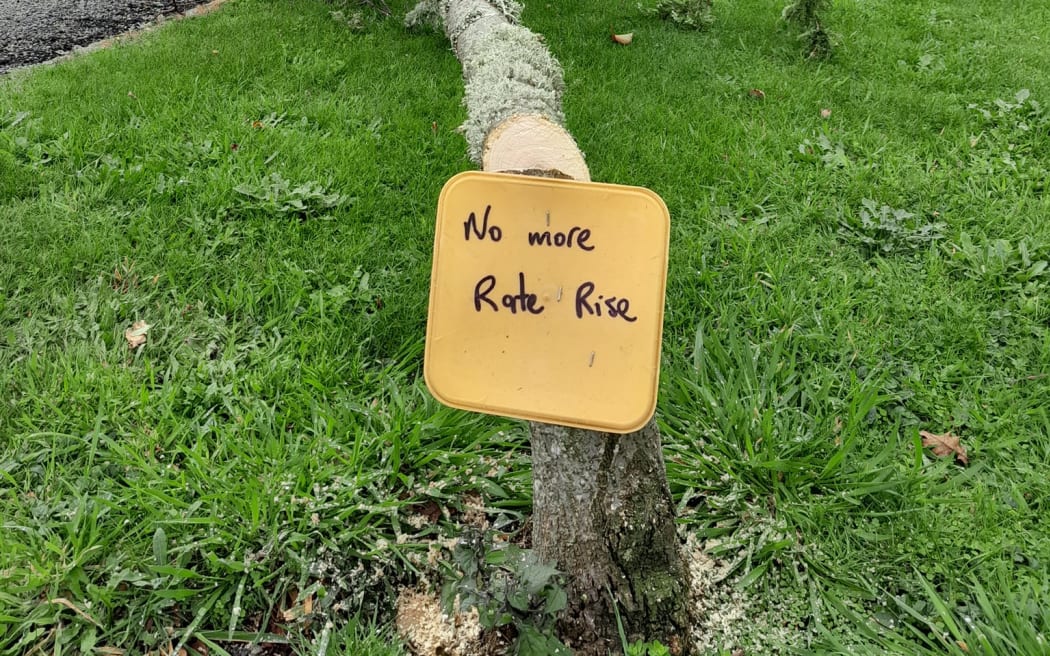Paying for pipes and roads is stretching every council in the country right now, and ratepayers are going to have to foot the bill

Photo: Supplied
Councils are calling for constitutional change over high-rising rates bills.
By the look of draft council long-term plans across the country, ratepayers are in for an average rise of 15.3 percent - the highest in more than 35 years.
"Over my time in council, so since 2010, most councils like to talk about three, four or five percent rates increases. If you were hitting six, that was quite a high increase. This year, six is the lowest increase in percentage for rates increases that anyone's doing," Selwyn mayor and Local Government New Zealand president Sam Broughton tells The Detail.
The Buller District, at the northern end of the West Coast, has one of, if not the highest increases in mainland New Zealand at nearly 32 percent. There's even talk of some properties in Stewart Island getting hit with increases of 500 per cent.
"One or two councils over the last three or four years have had larger increases, whether it's been around water, wastewater or particular projects within their districts. But this year, it's a national conversation. We're all having this really challenging convo with the community."
Broughton explains this is happening because of increased costs, mostly borne out of post-Covid inflation - for bridges, wastewater and the like - and low increases in the past.
"Councils are very limited in the way we can fund things. Rates paying for over half of council expenses is standard across the country... with those limited tools, it's meant that communities have generally asked for rates to be low.
"So this year, councils are all at the same time, recognising that the conversation's got to change."
Much of the financial challenge councils are facing was revealed in an Infometrics report commissioned by Local Government New Zealand, released last month.
Broughton is calling on the government to open up new avenues for council income. He's disappointed the government's taken away the Auckland regional fuel tax, but is pleased it's considering returning GST on new house builds to councils.
He wants the country to think about an even bigger picture: "Do we need a constitutional conversation, and I think we do, about how we make decisions - government by government can take a different approach... it's really easy to be doing one thing and three years later having to do another.
"It's a very big conversation... but it seems to me that the ability to have some deeper, more meaningful grown-up conversations as a country is what we need to have."
The Detail also speaks to BusinessDesk infrastructure editor Oli Lewis, who covered a conference where a new Infrastructure New Zealand report on council debt and funding was released.
"The report was essentially laying out what the picture is like in terms of how much debt councils are carrying in New Zealand and comparing it to historical levels," Lewis says.
"Councils back in the early 1900s and after WWII, they were carrying four to five times as much debt as councils today.
"They were building out all their infrastructure networks - their roads, tramlines and pipes. When you compare historically, we're actually seeing current local government, it's not particularly leveraged compared to previous periods.
"Councils are spending a lot more on renewing existing assets just pipes or whatever, instead of building growth infrastructure, because it's hard to do both.
And the big problem is, even though it's lower than before, debt is rising and revenue isn't increasing at the same rate that it has historically.
"From 2009-22, debt across all councils increased by 226 percent and revenue increased by 42 per cent."
Lewis also talks about how councils could improve their financing tools, such as having the government pay rates on the properties it owns.
Check out how to listen to and follow The Detail here.
You can also stay up-to-date by liking us on Facebook or following us on Twitter.


